What Smell Do Flies Absolutely Hate? Unveiling Natural Repellents
Flies can be persistent and annoying, but did you know there are certain smells they can’t stand? Using natural fly repellents can be a great way to keep these pests at bay. Some of the most effective scents that repel flies include peppermint, eucalyptus, and lavender. Flies absolutely hate the scent of these plants, making them perfect for keeping your home fly-free.
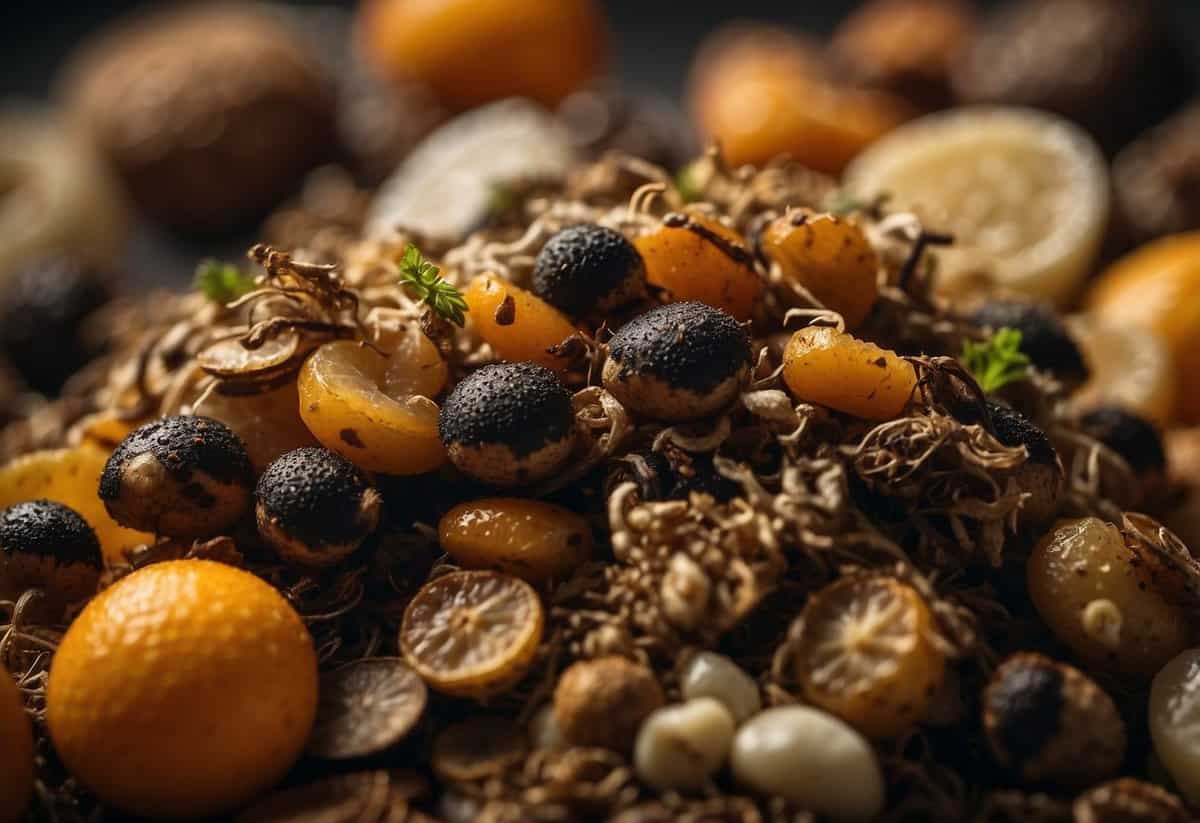
Imagine sitting in your yard without constantly swatting at flies. Peppermint and eucalyptus not only smell great to humans but also create a no-fly zone around your space. You can use essential oils or plant these herbs around your home to take advantage of their natural repelling properties.
Lavender is another powerful scent against flies. Placing dried lavender sachets or using lavender oil can make those pesky flies disappear. Not only will this make your home smell wonderful, but it will also ensure an enjoyable, fly-free environment for you and your family. By using these natural fly repellents, you can enjoy the outdoors and keep flies away effortlessly.
Understanding Fly Behavior and Preferences

Flies are attracted to smells that signal food, breeding grounds, or shelter. Your home can unknowingly offer many such attractions without you noticing.
The Impact of Scents on Flies
Flies have a keen sense of smell. Different odors can either attract or repel them. Scents like peppermint, lavender, and eucalyptus are known to drive flies away. When flies detect these odors, they tend to avoid the area. You can use essential oils or dried herbs to create a no-fly zone within your home. This method is both natural and safe.
By using these repellent scents, you can minimize fly activity around food preparation areas, garbage bins, and entrances. It makes your kitchen less inviting for flies like fruit flies and houseflies.
Common Attractions: What Brings Flies into Our Homes?
Flies are often drawn to areas with food waste and moisture. Rotting fruit, leftover food, and open trash cans are perfect attractions. Houseflies and fruit flies are especially common in the kitchen because of easy access to these sources.
Warm temperatures also play a role. During the hotter parts of the day, flies become more active and seek out places to feed and breed. Make sure to clean spills quickly and store food properly. Keeping garbage bins sealed and removing overripe fruits from the counter can significantly reduce fly attraction in your home.
Popular Herbs That Flies Dislike
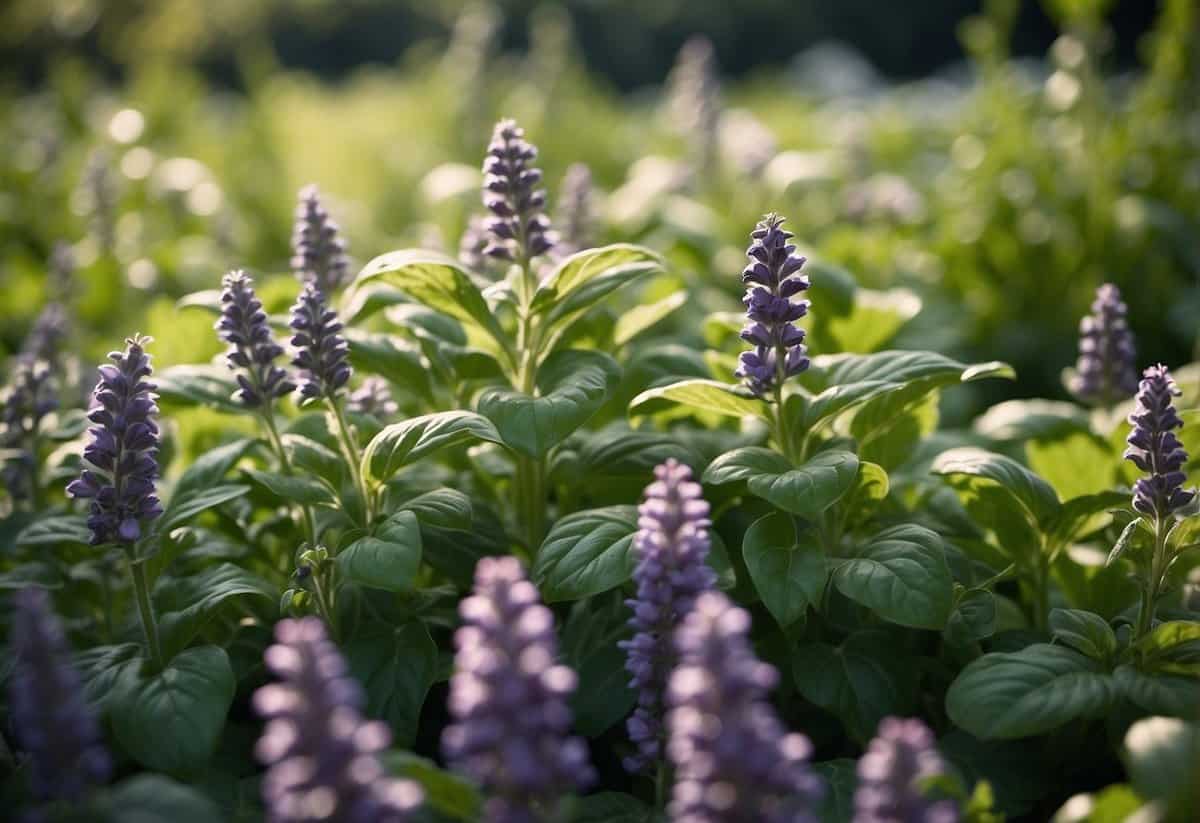
Many herbs have natural smells that repel flies effectively. These herbs can be used fresh, dried, or as essential oils to keep flies away from your living spaces.
Basil: A Natural Fly Deterrent
Basil is a popular herb that flies simply dislike. Both sweet basil and basil essential oil are great for repelling flies. You can plant a basil plant in your garden or keep potted basil near your windows and doors.
Tip: Use basil essential oil in a diffuser to spread the scent throughout your home. This not only keeps flies away but also adds a delightful aroma to your space.
The Efficacy of Lavender Against Flies
Lavender is another herb that flies hate. The strong scent of lavender flowers and lavender essential oil works well to keep flies at bay.
Place dried lavender sachets in areas where flies tend to gather. Using lavender essential oil in a diffuser or burning lavender candles can also help repel these pests.
Note: Lavender not only repels flies but also provides a calming effect, making your home more relaxing.
Rosemary and Its Repelling Properties
Rosemary has a strong scent that flies find unpleasant. Both the fresh herb and rosemary essential oil can be used to deter flies.
Planting rosemary in your garden or keeping potted rosemary indoors helps keep flies away. You can also burn rosemary essential oil or use it in a spray bottle mixed with water to repel flies.
Quick Tip: Keeping sprigs of fresh rosemary around your kitchen can help prevent flies from invading your food spaces.
Mint Varieties and Fly Repellence
Flies dislike the scent of all mint varieties, such as peppermint and spearmint. Mint contains menthol, which is effective in repelling flies.
Plant mint along the edges of your yard or near entryways. You can also use peppermint essential oil in diffusers to keep flies away.
Caution: Mint grows quickly, so plant it in containers to prevent it from taking over your garden.
Essential Oils and Blends to Keep Flies Away
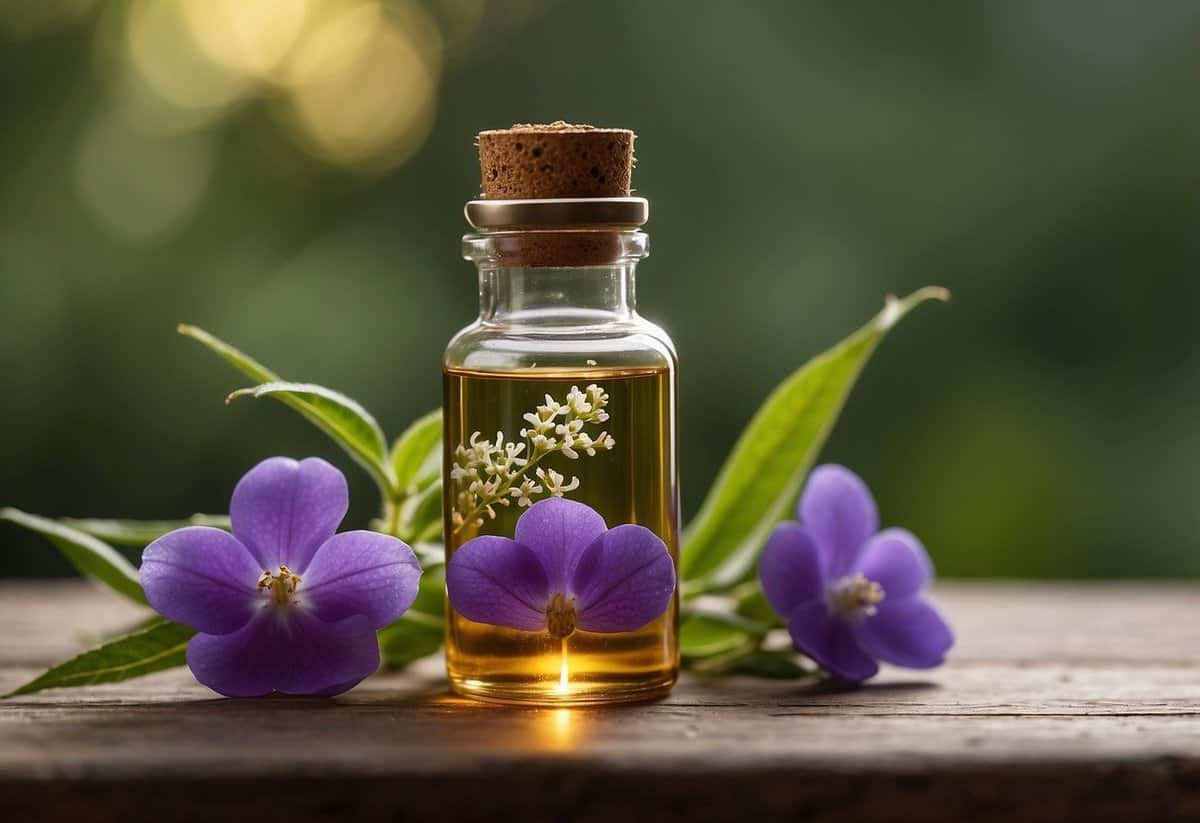
Using essential oils can be a highly effective way to keep flies at bay. By choosing scents that flies hate, you can keep your space fly-free while also enjoying pleasant aromas.
Citrus Oil Extracts for Fly Control
Citrus essential oils such as lemon, orange, and grapefruit are excellent fly deterrents. Flies dislike the sharp, tangy scent of these oils. You can place a few drops of citrus oil in a diffuser or create a spray by mixing the oil with water. Spray this mixture around windows, doors, and other entry points to keep flies outside your home. Citrus fruits themselves, like oranges and lemons, can also be used—simply place slices around your home to deter these pests.
Peppermint Oil: A Potent Fly Repellent
Peppermint oil emits a refreshing and strong menthol aroma that flies find unbearable. To use peppermint oil, mix a few drops with water in a spray bottle and apply it to areas where flies are common. You can also soak cotton balls in peppermint oil and place them in corners, near windows, or other fly-prone areas. The smell not only deters flies but also adds a fresh scent to your space, making it a win-win solution.
Eucalyptus: Refreshing Scent That Flies Hate
Eucalyptus oil is another essential oil that flies hate. Its strong, camphor-like aroma can easily repel these pesky insects. Diffuse eucalyptus oil in rooms where flies are a problem, or mix it with water in a spray bottle for easy application. This oil is especially useful if you like a refreshing, clean smell in your home. Additionally, placing eucalyptus branches around the house can help bolster your fly defense.
Lemongrass and Citronella: Tropical Scents Against Flies
Lemongrass and citronella oils are widely known for their bug-repellent properties. Flies especially dislike the lemony scent of lemongrass and the slightly sweet aroma of citronella. To use these oils, mix a few drops of either lemongrass or citronella oil with water and spray the mixture around your living areas. You can also burn citronella candles to create a fly-free zone outdoors. Another option is to grow citronella plants in your garden or keep potted lemongrass indoors. Rubbing fresh leaves between your hands can release their natural oils, providing an extra layer of protection against flies.
DIY Fly Repellent Solutions and Tips
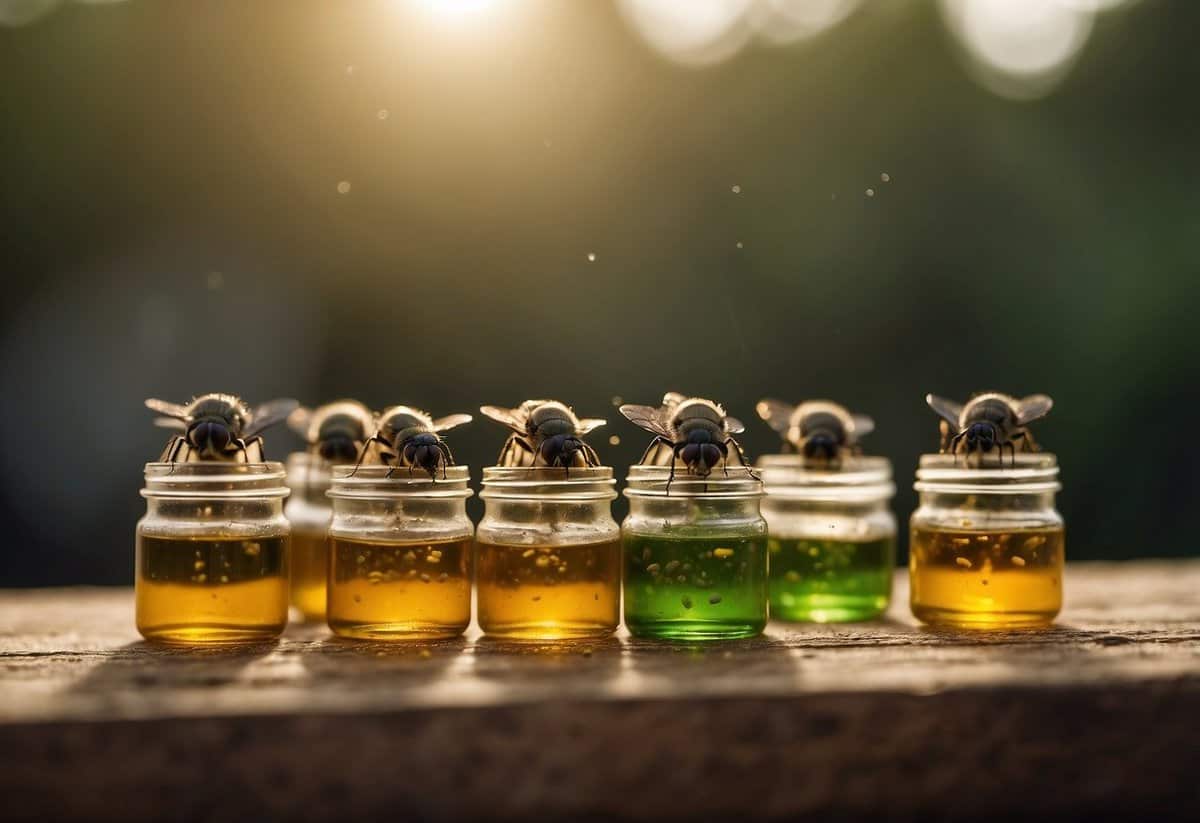
Creating your own fly repellents can be easy and effective. You can utilize common household items and readily available herbs to make mixtures that keep flies away. This guide includes simple solutions with vinegar, spicy mixtures, and herbal pouches.
Simple Mixtures with Vinegar
Vinegar is a potent ingredient that many flies detest. You can use either apple cider vinegar or white vinegar.
To make a simple repellent, mix equal parts vinegar and water. Pour this mixture into a spray bottle and spray it around your home.
For a stronger solution, boil a small amount of vinegar on the stove and then place it in a strategic spot. The heat helps to amplify the scent, driving flies away faster.
Using vinegar not only repels flies but also disinfects surfaces, providing a dual benefit.
Spicing Things Up: Using Pepper and Ginger
Spicy odors are powerful fly deterrents. You can use ground cinnamon, cayenne pepper, and ginger. These spices contain capsaicin, which flies find extremely unpleasant.
Create a spray by mixing water with a few teaspoons of ground cinnamon and cayenne pepper. Adding a bit of crushed ginger can enhance its effectiveness. Spray this mixture in areas where flies gather.
Another method is to make a pepper and vinegar solution. Combine water with white vinegar, add pepper, and spray around your home. The spicy scent will keep flies at bay.
Herbal Pouches and Sachets for Fly Prevention
Herbs like rue, tansy, and bay leaves are excellent for repelling flies naturally. You can make herbal pouches or sachets by filling small fabric bags with dried herbs.
Place these sachets in areas prone to flies, such as kitchen windows and doorways.
Lavender and laurel leaves can also be added to the mix, offering both a sweet aroma for you and a repelling scent for flies.
Using these herbal pouches not only keeps your home fly-free but also adds a pleasant natural fragrance.
Preventive Measures and Best Practices
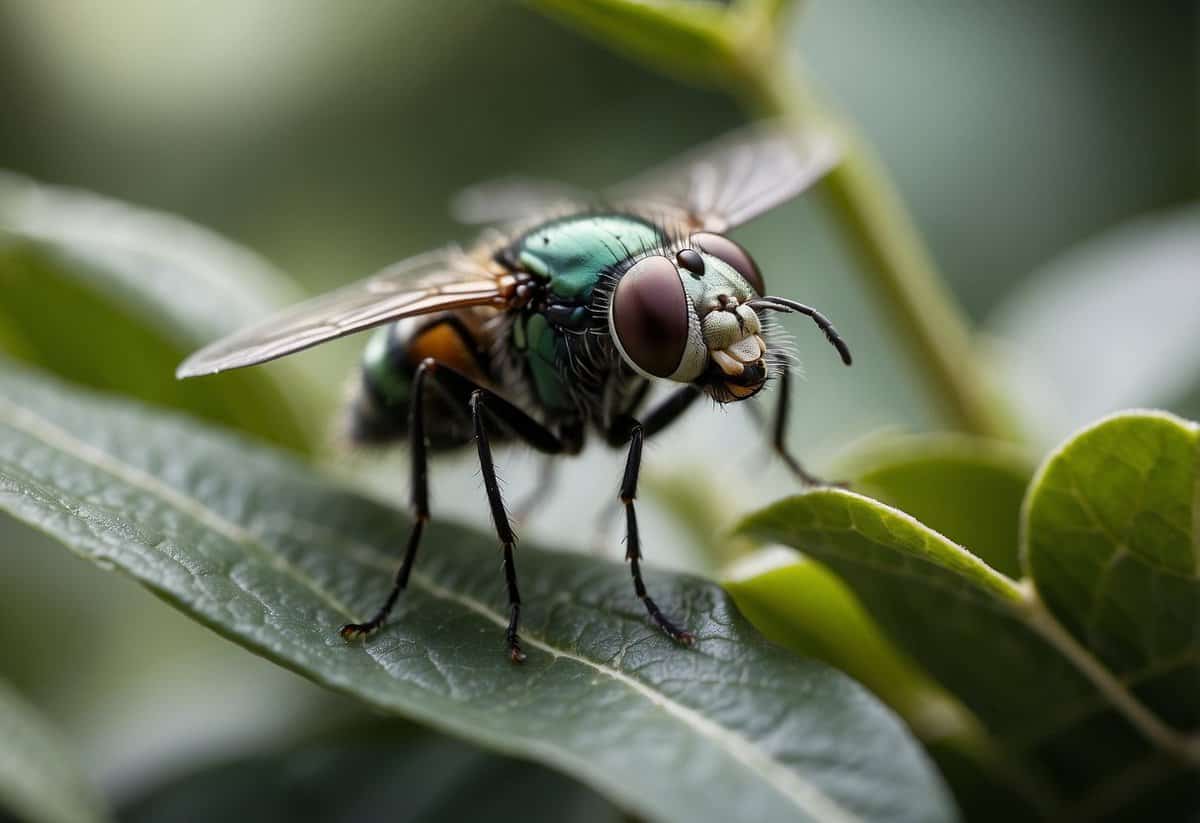
Taking steps to keep flies away can involve keeping your spaces clean and strategically using plants and scents they dislike in areas where they are likely to gather.
Sanitation and Maintenance to Deter Flies
Keeping your environment clean is crucial. Flies are attracted to rotting fruit, garbage bins, and pet feces. Regularly clean trash bins and ensure they have tight-fitting lids. Try to remove any rotting fruit or fermenting fruit from your kitchen counters or yard.
Doors and windows should be fitted with screens to keep flies out. Drain flies can be a problem in some homes; clean your drains regularly to prevent these pests from multiplying. Manure and pet feces should be cleaned up quickly to avoid attracting flies. Reducing food and water sources for pests helps prevent fly infestations. This can also deter mice and other pests that can indirectly attract flies.
Strategic Planting and Placement
Planting fly-repelling plants around your home can also help. Mint is highly effective; both peppermint and spearmint deter flies. You can place potted mint near entrances or plant it in your garden. Keep in mind, mint spreads quickly, so manage it well.
Another good option is lavender. Flies dislike its strong scent, and it can also deter mosquitos. Place potted lavender near windows or doorways. Basil and rosemary are also useful; these herbs can be planted around your yard and near entry points.
Using pine oil or placing pine tree clippings around areas where flies gather can further help. Cedarwood is another excellent option; its scent is less inviting to flies. Combining these plants and oils strategically can significantly reduce flies around your home.







